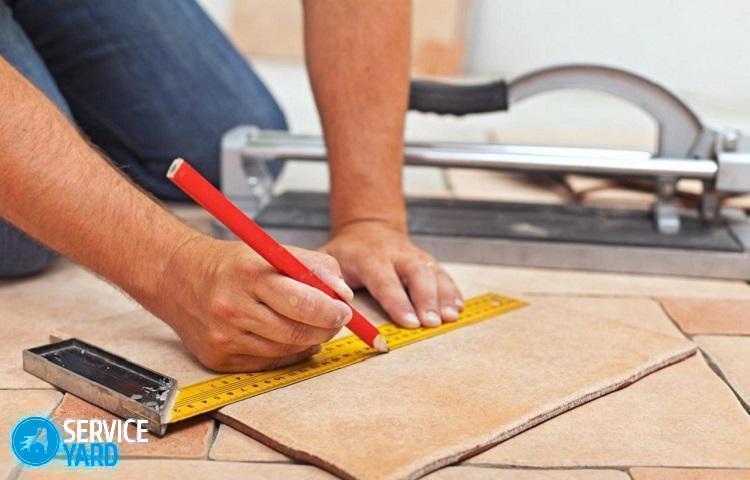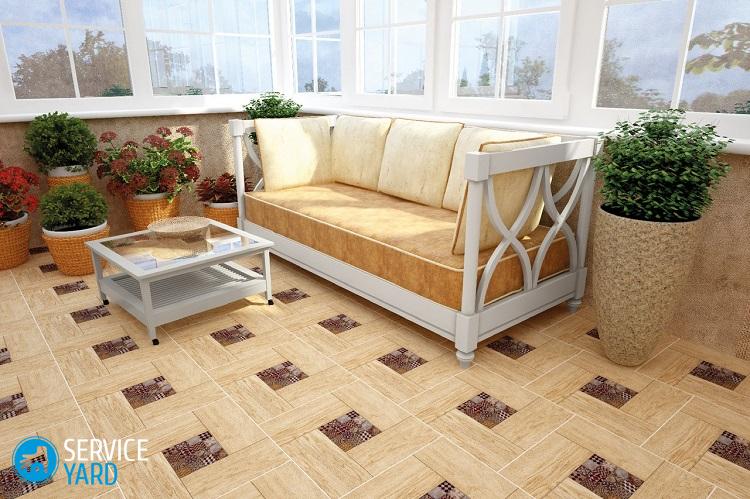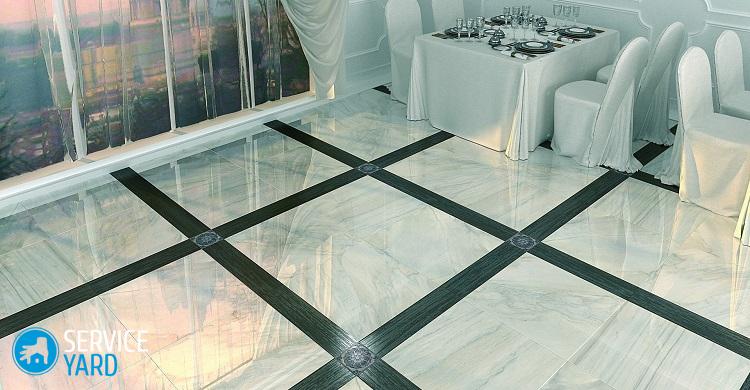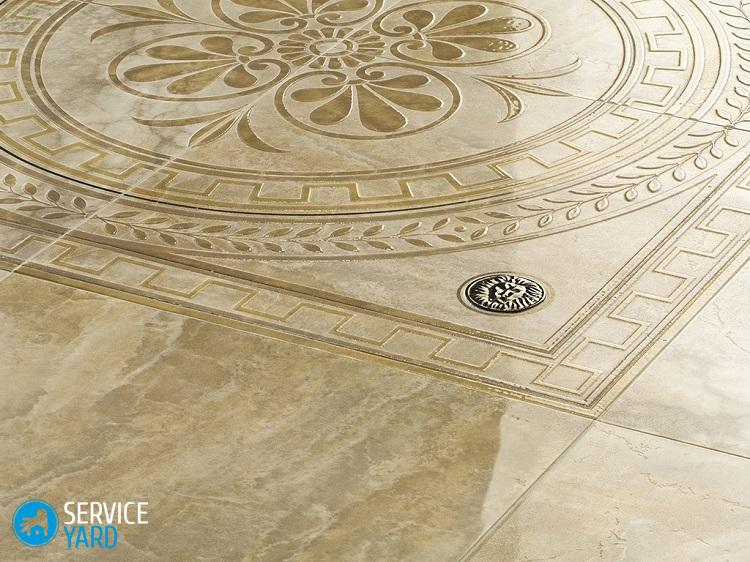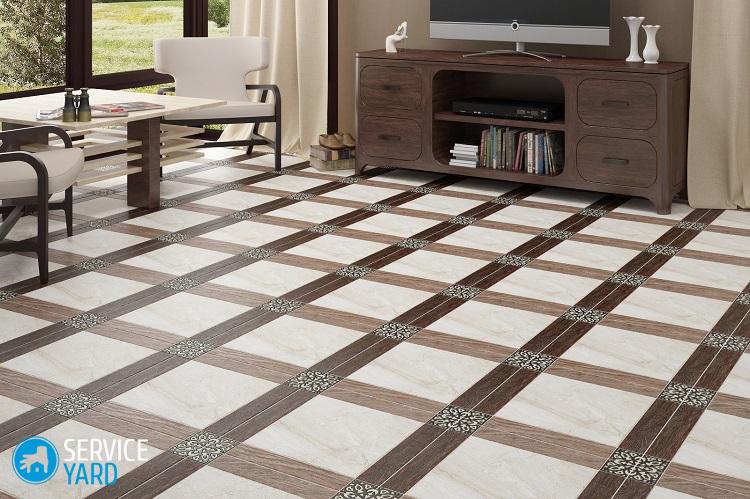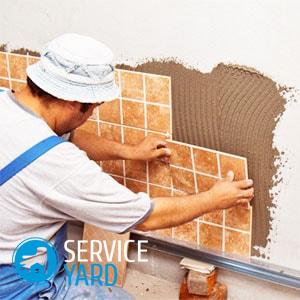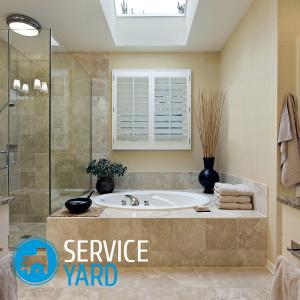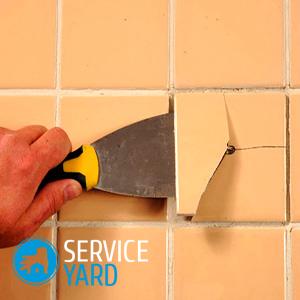Porcelain glue
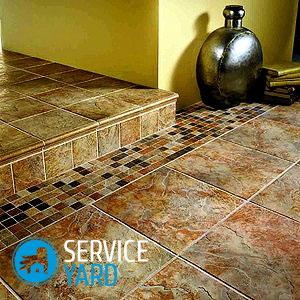
Porcelain tile is a beautiful, practical and very durable facing material. At the same time, it is quite demanding on the quality of surface preparation. The quality of the lining depends on how well prepared the base and what adhesive for porcelain stoneware is used. This article - the advice of experienced professionals, will allow you to make the right choice.
to contents ↑Advantages
Many people ask: is it possible to use ordinary mortar for working with porcelain stoneware? This is undesirable, since the porosity of the material is extremely small, and the coefficient of water absorption is also. Cement milk does not penetrate the lining. This contributes to the formation of voids. Tiles come off the surface.
A good glue for porcelain tile has a number of advantages compared to a conventional cement-sand mortar:
- Good adhesion of the adhesive to the surface.
- Plastic. For the complete polymerization of the adhesive, a certain time is needed. Until it is completely frozen, the position of the tile can be adjusted. An exception to this rule is quick-drying mixtures.
- Frost resistance. Resistance to low temperatures allows the use of glue for outdoor use.
- Water resistance.
- Environmental Safety.
- Universality. In addition to external and internal works, the adhesive mixture is suitable for cladding underfloor heating, fireplaces and stoves.
to contents ↑Important! If you are laying granite on a complex base (metal, wood or drywall), an epoxy compound or a mixture on polyurethane is best suited for facing.
Strength, expenditure:
- As a rule, adhesive mixtures are sold with standard 25 kg bags. The glue consumption directly depends on its brand. The average cost of material per square meter is from 2 to 5 kg.
- Porcelain stoneware is quite heavy, especially for large plates. Therefore, it is important that the composition has good adhesion and a high compression strength. The thickness of the adhesive layer is 2-5 mm. The larger the cladding, the thicker the adhesive layer.
Important! A thick layer of glue is also necessary when installing porcelain stoneware tiles on underfloor heating.
- It is impossible to use an ordinary spatula during installation, the quality of work will suffer. Under the tile air bubbles form, which can cause the cladding to peel off or even crack. Apply the composition with a comb spatula. The principle of choosing a tool is as follows: the larger the layer of adhesive applied, the larger the size of the spatula. You can also use the information on the package with the mixture.
to contents ↑Important! Tile adhesive cannot be used to level the surface. There are special compounds for this.
Types of composition
All adhesive compositions are divided into the following types:
- One component. Ready-to-use paste formulations. Such glue is elastic and dries for a long time.
- Two-component. These are epoxy or polyurethane compounds.
- Glue mixes on Portland cement. They include plasticizers that give the adhesive elasticity. Compared to a traditional building mixture, this composition dries longer. It is used if the temperature and humidity conditions of operation of the tile are complex.
Important! To ensure good adhesion of the tile to the surface, it is necessary to carefully prepare the base: clean it from dust and debris, degrease, carefully remove the remains of old paint. The surface must be perfectly aligned and primed. As a rule, this information is applied to the packaging of glue.
Additional components
The most popular adhesive mixtures are based on Portland cement. Fractional filler is quartz sand and a number of special additives.
There are such varieties of modifying additives:
- Moisture retention component. The rate of solidification of the solution depends on its quantity.
- Redispersible powder from polymer - provides better adhesion of the cladding to the base, affects the strength of the tiles.
- A thickening agent that affects the polymerization rate of the mixture.
- Cellulose fibers - prevent the appearance of cracks, contribute to the retention of water in the solution.
Features of the microclimate during cladding
Before using glue for porcelain tile, do not be lazy to study the instructions for it:
- It is especially important to know how long the ready-to-use mixture retains its characteristics. On average, this time period is from 1 to 8 hours. The amount of solution kneaded at once depends on this.
- Another important indicator is the polymerization time. This indicator is indicated on the packaging of the product. The average pour time is 1 day. Now you know how much time is left to adjust the position of the tile if necessary.
- When choosing glue, it is important at what temperature you intend to work. If the temperature exceeds 15 degrees, then it is advisable to choose an adhesive that dries for a longer time. In lower temperature conditions, a rapidly hardening composition is desired.
The best glue for porcelain tile
It is hardly possible to give a definite answer to this question. It all depends on the scenario of the use of the premises, as well as on the indicators of humidity and temperature at which the finishing work is performed.
The most popular products are such brands:
- Ceresit, Knauf (Germany).
- Hercules, Founders, Litokol, Ivsil (Russia).
- Index, Mapei (Italy).
What is the best glue for porcelain tile - largely depends on the individual taste. The Hercules brand mix is not inferior to its Western counterparts in quality, while its price is significantly lower. The Knauf brand produces glue for slabs 30x30 cm.
to contents ↑Important! When dealing with the types and types of glue, think about other nuances of doing the work. Our reviews will help you:
Grout
This stage is the final in the process of installing ceramic granite cladding. The grout is chosen so that its color is combined with a hint of porcelain stoneware. The choice depends on many factors (joint width, compatibility with tile adhesive for porcelain stoneware, exterior or interior use).
Features of the grout include:
- Good adhesion to the surface.
- Extensive tint spectrum.
- Ease of preparation of the composition, ready to use.
- Moisture resistance.
- No shrinkage.
to contents ↑Important! To select a high-quality grout and grout, click on the link to our special publication - "Tile grout".
Stock footage
We hope that the selection recommendations will help you with the purchase, and facing any surface with porcelain stoneware will have exactly the form and strength that you were counting on.



